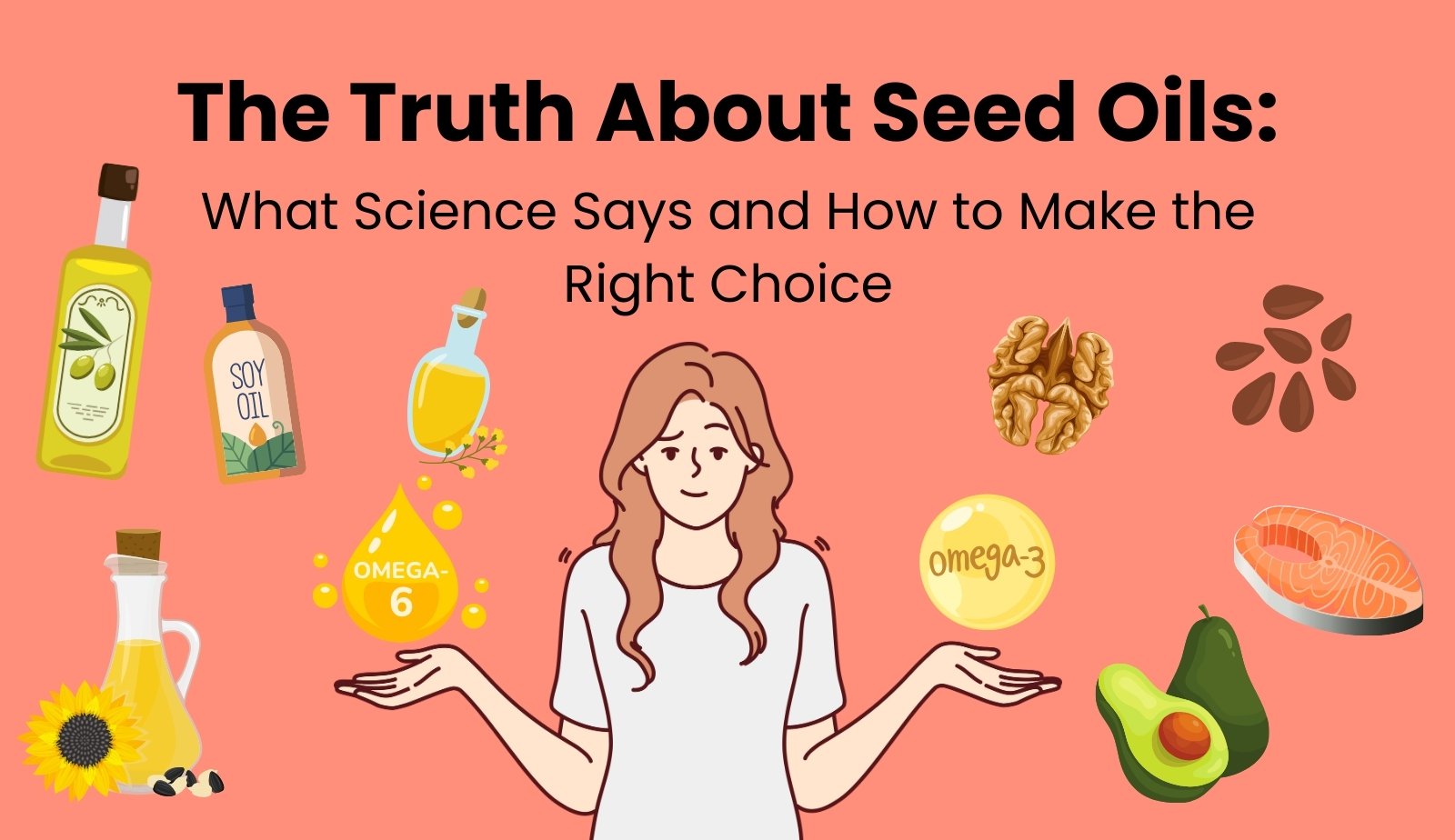In the health and wellness world, seed oils have become a hot topic of debate. Some claim they are the root of chronic inflammation, while others highlight their nutritional benefits. At Karviva, we are committed to science-backed wellness, so let’s uncover the truth about seed oils and help you make an informed decision for your health.
What Are Seed Oils?
Seed oils, such as sunflower, soybean, canola, and grapeseed oil, are derived from plant seeds and are commonly used in cooking due to their mild flavor and high smoke points. They are rich in polyunsaturated fatty acids (PUFAs), including Omega-6 fatty acids. While Omega-6 is essential for the body, an excessive intake in relation to Omega-3 can contribute to inflammation.
The Omega-6 and Omega-3 Balance
Omega-6 and Omega-3 fatty acids are both essential, meaning our bodies cannot produce them on their own. However, modern diets often contain too much Omega-6 and too little Omega-3, leading to an imbalance that may contribute to inflammation and chronic diseases.
The key takeaway is: seed oils are not inherently bad—it’s the overconsumption of Omega-6 without enough Omega-3 that creates problems. Instead of avoiding seed oils altogether, focus on balancing your intake by incorporating Omega-3-rich foods like flaxseeds, walnuts, and fatty fish.
The Impact of Refining on Seed Oils
Not all seed oils are created equal. The level of processing and refining determines their health impact.
- Highly refined seed oils undergo chemical processing, deodorization, and high-heat refining, which removes beneficial antioxidants and polyphenols. While they have a longer shelf life and higher smoke points, they lose much of their natural nutrition.
- Cold-pressed or unrefined seed oils retain more natural compounds, making them a healthier option. Examples include cold-pressed sesame oil and high-oleic sunflower oil.
When choosing seed oils, opt for minimally processed versions whenever possible.
Cooking with Seed Oils: Smoke Points Matter
One concern with seed oils is their stability at high temperatures. Every oil has a smoke point—the temperature at which it starts breaking down and releasing harmful free radicals. Here’s what you need to know:
- Refined seed oils (e.g., canola, sunflower, and soybean oil) have higher smoke points, making them more resistant to heat.
- Unrefined oils (e.g., extra virgin olive oil and cold-pressed oils) have lower smoke points but contain antioxidants that help prevent oxidation.
- Overheating any oil—even the healthiest one—can degrade its nutrients and produce harmful compounds.
Karviva’s Approach: Finding Balance
At Karviva, we believe in balance over extremes. Demonizing an entire category of oils oversimplifies a complex issue. Instead, we recommend:
- Prioritizing whole food sources of healthy fats, such as nuts, seeds, and avocados.
- Choosing cold-pressed or minimally processed oils when possible.
- Balancing Omega-6 intake with Omega-3-rich foods like fatty fish, flaxseeds, and algae-based sources.
- Using cooking oils appropriately, avoiding overheating and reusing fried oils.
The Final Verdict
So, should you avoid seed oils? Not necessarily. The real issue is how much you consume, what type you use, and how you balance them with other healthy fats. Rather than eliminating seed oils, focus on quality, moderation, and balance.
At Karviva, we are dedicated to holistic wellness and nutrition education, helping you make informed choices for a healthier life. Stay mindful, choose wisely, and embrace the power of nature’s nourishment!




